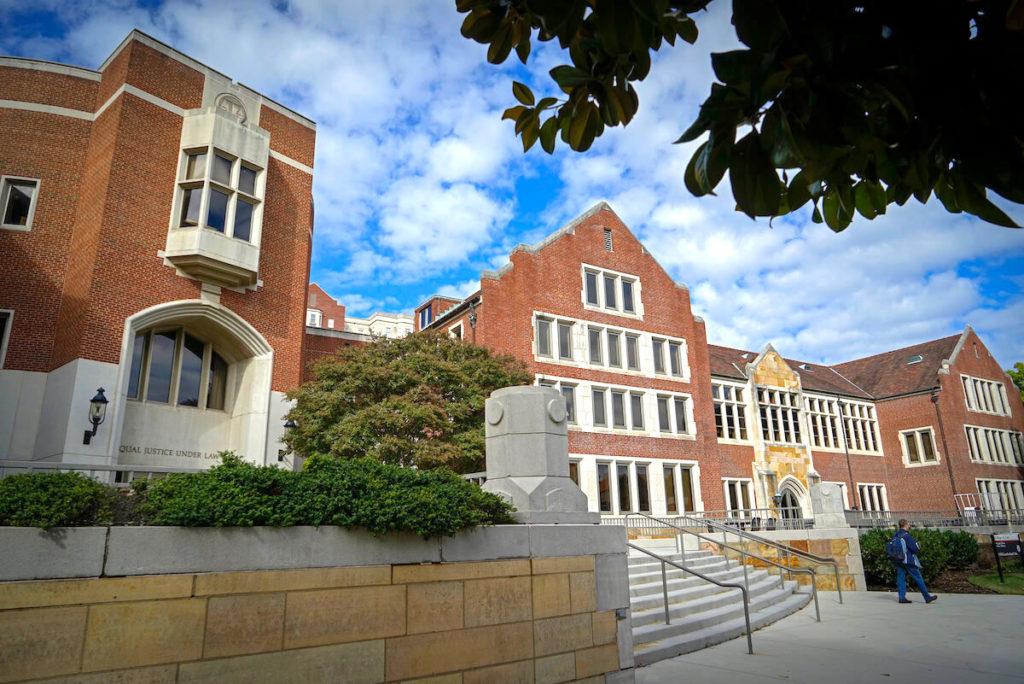The University of Tennessee College of Law Legal Clinic has been awarded $100,000 from the Tennessee Bar Foundation to fund a project that will offer civil legal assistance to rural East Tennesseeans.
The Legal Clinic’s project, ExpungeTN, aims to lift barriers for those who want to clear their criminal records and rebuild their lives, and will target vulnerable populations in geographically isolated areas of East Tennessee.
The Tennessee Bar Foundation announced on Thursday that it would distribute more than $1 million in awards to encourage innovation in civil legal aid. The UT College of Law is the only Tennessee university to receive an award from the organization.
“We are thrilled for this opportunity to expand our expungement work and reach people in rural East Tennessee who we wouldn’t have had the opportunity to assist without this major grant,” Legal Clinic Director Joy Radice said.
The College of Law will hire a fellow to assist in launching the project, and that person will “establish dates and times to best partner with east Tennessee courts and judges to offer our services to those who need it,” Radice said.
Through the project, the College of Law Legal Clinic specifically aims to:
- Launch a website of pro se friendly resources for individuals to use statewide;
- Organize Saturday community courts in rural jurisdictions with the assistance of local judges, clerks, district attorneys, law students, community groups, and churches; and
- Develop a pilot app that will automate the generation of court petitions for expunging dismissed charges.
College of Law Dean Melanie Wilson said the expungement efforts of the Legal Clinic are just one of the many ways that the school is working to improve the lives of those in our community.
“One of our goals is to serve those who need legal assistance in Tennessee and help them improve the quality of their lives,” Wilson said. “Our Legal Clinic does that in so many ways, and it’s gratifying to see Professor Radice and the other faculty, staff, and students recognized through this significant award from the Tennessee Bar Foundation.”
According to information released by the foundation, each award recipient will assess its results after a year. Those projects that demonstrate high efficacy and impact will be eligible for continued funding.
“It is hoped that these pilot projects will show that system-level change may come through scale or replication,” Tennessee Bar Foundation Executive Director Barri Bernstein said in the release.
Since 1982, the Tennessee Bar Foundation – comprised of attorneys from across the state – has financially supported law-related public interest projects.
